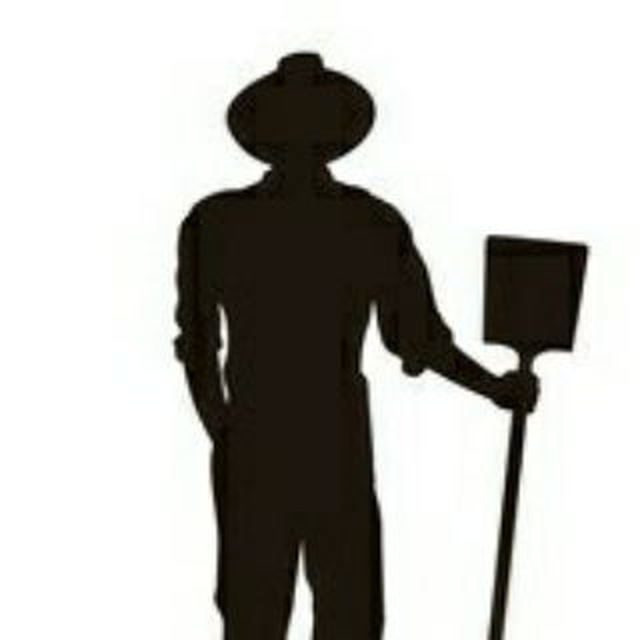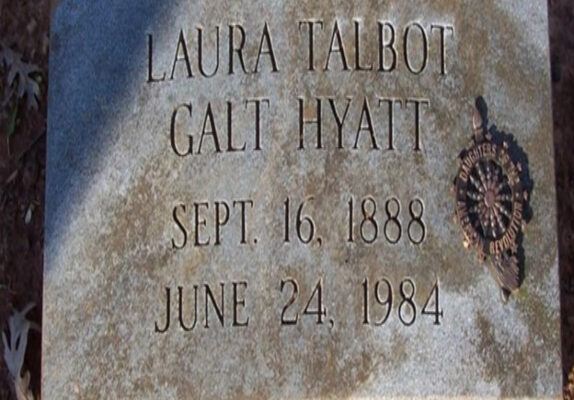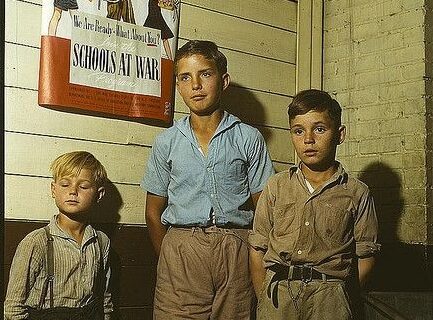(Preface: Only a day or two following the ushering in of the current year, I received a welcome phone call from our eldest son, who informed me right away that a main purpose behind his call was to run a new idea of his by me. As it happened, before he had finished with his “sales pitch,” I was already one-hundred percent onboard with the idea, and agreed to “give it a go.” His proposition was simply this: that I write a series of short children’s stories dedicated to imparting knowledge of their ancestors to his children and their cousins (my grandchildren) in particular, but which stories, we both agreed, might also serve the educational needs of Southern children and their families more generally over time.
A few days afterward, I began work on the project, quickly turning out a tentative list of twenty-five (25) stories to write about, and of completing three (3) of the stories on the list. Below the fold is one of those three, written in the style of first-hand stream of consciousness. With the gracious cooperation of our editor, I will be sharing more of these stories at this site in the weeks and months to come, God also willing and all that. And my hope is that y’all will respond in one of two ways or both: (1) that you will offer honest and thoughtful feedback, positive or negative; and/or that (2) you will offer ideas for stories you might like to see added to the list. Which suggestions I hereby promise to take into serious consideration, should or when they come. -TM)
My name is Laura Talbot Galt. I was born September 16, 1888, in Louisville, Kentucky. My mother named me after my grandmother, Mrs. Laura Talbot Ross. My middle name is my grandmother Ross’ maiden name. My grandfather Ross died eleven years before I was born. He was a doctor who treated sick and wounded soldiers in Confederate hospitals during the War Between the States (WBTS).
I grew up on the old family homestead near Louisville that has been in the Ross family since the 1780s. My father died when I was only five years-old, so my memory of father is very limited. His name was John Galt. He was a doctor like both of my grandfathers.
My only playmates when I was a girl were the animals on our farm. My pony, Sadie, was the best playmate I had as a girl; she let me saddle her and ride her anytime I wanted with no trouble at all. I was allowed to read any books in my grandmother’s library I wanted to. I read them all except the medical books that belonged to grandfather.
Among the most prized of all my worldly possessions are the many letters and lots of awards I received from ex-Confederates from almost every state in 1902, when I was only 13 years-old. I shall cherish them as my peculiar treasures always! You might like to know how these treasures came to me. I will tell you the story.
When I was only ten years-old, I began to beg my mother and grandmother to enroll me in the common school in Louisville. I wanted to go to normal school like all of the other children my age. They said no at first, but about the time I turned twelve they changed their minds and enrolled me in the school. My teacher was Miss Allen. She was a plain looking young Boston woman with a strong Yankee accent who was not yet married. She graduated from teacher college in the year 1899.
I was enrolled in school in 1901. Miss Allen gave a history lesson that fall about a subject I had already learned much about from my studies at home. This was the now famous story of when Admiral Semmes did not surrender his sword in defeat to Captain Winslow and escaped capture on the Deer Hound. We were told by Miss Allen that this was a breach of honor on the part of Admiral Semmes, but I denied it because I knew the facts of the case that Miss Allen did not tell in her lesson.
Strange to say, but the story told in our history book did not tell about Captain Winslow firing broadside after broadside into the Kearsarge after the white flag of surrender had been raised by Admiral Semmes. This meant that the breach of honor really belonged to Captain Winslow, and that Admiral Semmes was both justified and right in keeping his sword and escaping capture. These are the reasons I gave to Miss Allen for refusing to say that Admiral Semmes was guilty of a breach of honor in that battle.
When that happened I began to see why mother and grandmother did not want me to go to normal school at first. They were wiser about such things than I was. I was so young and naive that I would never have thought this possible, but they knew that the people who write textbooks and train teachers for normal schools sometimes tell stories that are only partly true, and they leave out facts they don’t want pupils to know about.
In my second year at school, Miss Allen made us memorize the words to Marching Through Georgia, a song that glorifies the cowardly acts of General Sherman and his army in making war on helpless women and children. Reading the words of that song made my blood boil then, and I think that is the reason I had no trouble memorizing it. But when Miss Allen later made us sing the song as a class, I told her I would not do it. She said I had to, or I would be punished. I told her I would rather be punished with a whipping than to sing that awful song. Nor could I stand to listen as my classmates sang it, so I stopped my ears with my fingers and hummed a different song while they sang. I thought it was my duty to disobey my teacher in that case, and to take my punishment instead. I did not get a whipping, but a reprimand instead, which was a serious thing in those days.
To this day I don’t know how, but some newspaper man from Georgia found out about the trouble my little act of duty got me into at school, and before I knew what was happening newspaper readers in every state and territory were learning the facts of the case. A short time later, my name and my little act of duty in school became the gossip of many and “household words” wherever there were newspapers and printing presses to be found ‘from Dan to Beersheba.’
Then letters from old Confederates and Confederate organizations suddenly started coming to me, post stamped from almost every state and territory. I even got a letter postmarked Cornish, Pickens County, I.T. One letter that caused me to shout for joy when I read the return address, came from the John Pelham Camp of the UCV (United Confederate Veterans) in Texas. I even read that one to Sadie because so many times she and I had dashed around the farm, pretending we were in Pelham’s artillery fighting back Yankee invaders of our country.
Besides personal letters, I also got official ones on pretty letterhead telling me I was elected “honorary member for life” by more than a few chapters of United Daughters of the Confederacy. I still have the letters from each chapter that brought me that exciting news that I keep together all in one box. One Georgia chapter of The Daughters even had two special brass medals struck in my honor. They sent two delegates to the 1903 State Reunion in Louisville, who gave me those medals as an honored guest at that reunion.
That is my story of how I came to be so richly rewarded with the best treasures a Southern girl proud of her heritage could ever ask for. Even so many years later, I can hardly find words to express how extremely honored I feel when I look at my letters for the thousandth time. And I think of what those dear old Confederates suffered for the cause they loved so dearly, and yet they praised me so highly for such a little act of duty. They did not know how much pleasure they gave me, for I have always thought of their letters as my most cherished worldly possessions and treasures.
-Laura Talbot Galt






“them that honor me I will honor, and they that despise me shall be lightly esteemed.” 1 Sam. 2:30.
That was an excellent idea your son had, and I look forward to subsequent installments. So many buckle to peer pressure today that Laura is an exemplar to all of us that God can and will bless one who stands for the truth. I’d love to see all the stories bound in a single volume for homeschooler curriculums … but I’m sure you’ve already thought of that.
Clearly, if WE don’t teach the coming generations the truths of history, no one else is going to.
Amen to that, Sir! And, yes, you are correct in assuming that my son & I have been discussing the potential benefits of collecting the stories into a single volume, or perhaps several, since, as you well know, any list of twenty-five (25) stories about Southern heroes and heroines literally amounts to the tip of the iceberg. You might also be interested in knowing that the current list (of 25) includes two (2) that may be directly accredited to your inspiration. Namely that of Mrs. Beers, and that of Emma Sansom also.
Thank you as always, Sir, for your much-appreciated positive feedback. Without it, from you and Outside Looking In, and several others amongst our loyal readers at this site, as well as that from those within my more immediate circles of influence, I would long ago have thrown my hands up and exclaimed “what the hell is the point?!”
Those who know me best know I’m not a model of patience — or optimism — but I’m encouraged to persevere by these words from Richard Sibbes:
“There was in Christ regnum patientiae, a kingdom of patience, as well as regnum potentiae, a kingdom of power and glory. … So, in every member of his, there is a kingdom of patience set up. … When he was subdued by death and Satan, was there a kingdom then? Yes, a kingdom. For though visibly he was overcome and nailed to the cross; yet invisibly, he triumphed over principalities and powers. … [Did] not Christ reign on the cross when he converted the thief? When the sun was astonished, and the earth shook and moved, and the light was eclipsed? … In patience he reigned and triumphed.” p. 27.
Richard Sibbes, ‘A Christian’s Portion’, Works, Vol. 4
I have read your beautiful account of Laura a few times now. I believe it is not long enough. I might add, when Laura talks about Sherman, go to a book she might have read and qoute what she knows. Really get it Into the readers heart- like it did her.
I would also cite the navy, or ships, and call the deer hound “the ship deer hound” its a little lacking there to me.
I was prompted to read a book I have called “The Boys War” by Jim Murphy because of your article, the author claims 10-20 percent of the total military, both sides, were under 18. Most really young boys (12-14) would become drummers, I believe you could write a story about a confederate drummer boy, drumming the commands to the troops, marching, taking care of the horses, sleeping at the campfire and what not. Boys would Love that.
I read the Boys war in an hour or so if you need information on it. I have an ex library copy(centennial school) I bought used, the book is no wall flower let me tell you. It can be brutal. The drummer Boys are certainly hero’s of the highest order.
Great first draft!
God Bless you Sir.
Edit-correction
—-boys sixteen years and younger.
………..from this he estimated that between 10 and 20 percent of all soldiers were underage when they signed up. That means that anywhere from 250,000 to 420,000 boys may have fought in the Civil War!
From the book- The Boys War by Jim Murphy. 1990.
Thanks for raising this sir, I will definitely follow your suggestion and clarify that it was a Naval battle in the story. I also have more information about Laura that I will consider adding to her story as well. Including a story or stories of the boys who served in the war is a great idea as well. Several of my own relatives were mere boys when they enlisted, and by all accounts I have read of their service they all served valiantly and “did their duty as soldiers.”
One story I had in mind involving drummer boys is about those who were captured with their units and were eventually taken to Andersonville, where Maj. Wirz immediately separated them upon their arrival from the adults, and kept them in a separate unit outside the stockade for their safety.
Mr. Morris.
I am not steeped in Southern history and culture as you are, if I remember correctly German Confederate said that Maj. Wirz wanted to do a prisoner exchange and was denied by the Yankee power, is it more than a guess to think that the victors persecuted Maj. Wirz as some kind of justification for Sherman’s March through Georgia? The author of the book, the boys war, makes him out to be bad also, and says he’s the only one to stand trial for war crimes after the war and that he was executed. RIP Maj. Wirz. The author didn’t talk favorably about the Yankee prisons either.
Pardon me for the late reply.
God Bless you on your endeavor Sir.
P.S
I went to the bookstore and got a book called ‘The Orphan Brigade, The Kentucky Confederates Who Couldn’t Go Home’.
William C. Davis. 1980. Author of Battle at Bull Run.
Our Beautiful Laura lived there. I will think of her when i read this book.
On September 18, 1861, ominous sounds of Battle thundering in the distance, the Kentucky legislature voted to align itself with the Union. It was a decision which tore at the heart of the state, splitting apart families and severing friendships. For the newly formed first Kentucky Brigade, it marked a four year separation from the beloved homeland. Fiercely independent to the end, these men would fight for the cause of the South. With their first March into battle, they became outcasts from their mother state — orphans in the raging strife of civil war.
From the inside flap of the book. The Orphan Brigade.
On September 18, 1861, ominous sounds of Battle thundering in the distance, the Kentucky legislature voted to align itself with the Union. It was a decision which tore at the heart of the state, splitting apart families and severing friendships. For the newly formed first Kentucky Brigade, it marked a four year separation from the beloved homeland. Fiercely independent to the end, these men would fight for the cause of the South. With their first March into battle, they became outcasts from their mother state — orphans in the raging strife of civil war.
From the inside flap of the book. The Orphan Brigade.
“the victors persecuted Maj. Wirz as some kind of justification for Sherman’s March through Georgia?”
Good guess. That’s precisely the case.
Trial of Henry Wirz: a National Disgrace
https://www.tennesseescv.org/uploads/1/3/6/5/136584498/the_trial_of_major_henry_wirz-_a_national_disgrace.pdf
The issue with prisoner exchange was outside Maj. Wirz’s control. He was definitely scapegoated, tried, convicted, and sentenced by a kangaroo court. In addition to the paper linked to by German Confederate, I also highly recommend James Madison Page’s first-hand account that I wrote about here:
https://identitydixie.com/2024/02/21/james-madison-page-and-the-true-story-of-andersonville/
Mr. Morris, Thank you and German Confederate for your reply and both of your recommendations.
God Bless and Save the Southland!